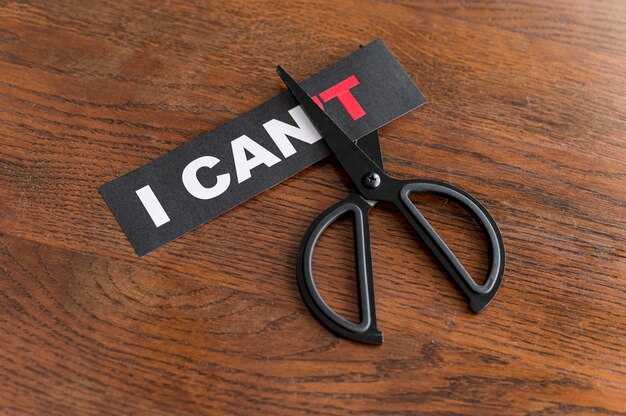One of the toughest realities to swallow when you’re in love with someone who consistently withdraws is this: the more you pursue them, the more they distance themselves. It feels painfully unjust. The chasing isn’t born of desperation; it’s born of care. You chase because you recognize what could be, because you want to preserve something that once felt genuine. Yet here’s the inconvenient truth nobody tells you: avoidant partners do not receive love the way you imagine. What you intend as devotion reads to them as pressure. What you offer to soothe them lands as overwhelming intensity. You keep showing up — texting, clarifying, giving, forgiving — convinced that persistence will create safety. With avoidance, that logic fails. For them, this emotional influx doesn’t translate into closeness; it registers as a threat to their nervous system. And here’s where people get tangled: you think if you simply love harder, hold tighter, they will finally appreciate you. But the tighter you hold, the more they pull away. Not because you are excessive, but because they haven’t learned to rest in emotional intimacy without feeling erased. Chasing won’t reclaim them; it will reinforce their belief that love costs their autonomy. If this sounds familiar, take a breath. Your head is likely racing with questions like, “Am I the problem? Is my effort the issue?” No — caring isn’t the flaw. They are not calibrated to receive that level of care. That mismatch is where everything derails. Often, avoidant people grew up where closeness was unsafe. Vulnerability wasn’t modeled: it was punished, ignored, or swamped them. Their nervous system adapted for survival rather than for connection. So intense feeling doesn’t register as love to them; it feels like pressure. Picture being in a room where the music blares while you crave silence — that’s what your open heart can feel like to them. When you approach with big emotions, whether in conflict or in vulnerability, they don’t lean toward you; they retreat — not because they lack feeling, but because it becomes too much, too soon, and they don’t have tools to process it. The long explanatory message you send as clarity becomes chaos in their perception. And here’s the hard truth: avoidant people are not broken; they’re defended, armored emotionally. That armor, not an absence of care, blocks the way. When you come at them with urgency, their inner alarms ring. They feel boxed in, flooded, and their system opts for shutdown. You ask yourself, “What did I do wrong?” — when in fact you simply tried to speak the language of love to someone still fluent in fear. They learned lessons like, “Don’t rely on anyone. Don’t let them get too close. Maintain control or you’ll get hurt.” So your wholeheartedness reads to them as risk, not a gift. It may seem counterintuitive: won’t stepping back make them think you don’t care? If you keep piling on pressure, they’ll feel suffocated. But when you create emotional, energetic, or even physical distance, you give them what their nervous system longs for: space. Space may feel like disconnection to you, but to them it’s regulation — breath, safety — because they cannot connect while overwhelmed. They won’t typically say, “I’m scared.” They’ll withdraw, ghost, retreat quietly. That silence isn’t indifference; it’s protection. Take this in: your love isn’t the problem — your tempo is. You’re trying to love on your timetable, but healing happens according to their nervous system’s rhythm. If you don’t honor that timing, they don’t leave because they don’t want you; they step back to avoid losing themselves. That realization is where power begins. When you stop chasing — not as punishment or manipulation, but from understanding that love that feels like pressure will never feel like peace — change can start. The loop is predictable: a small shift, a pause, a delayed reply or a canceled plan triggers your alarm. You go into repair mode: Did I mess up? Are they pulling away? You send messages, maybe several, check their activity, overanalyze. You attempt to reestablish contact before the distance grows. But that very pursuit, sincere as it may be, confirms the avoidant’s fear that closeness equals danger. So they pull back further to avoid the feeling of drowning. Now you’re in the cycle: you reach out, they withdraw; you anxiously respond, they go quiet; you explain more, they detach more. The more emotional you become, the more they shut down — which makes you even more emotional. Hear this clearly: you are not crazy, needy, or defective. You’re trapped in a dynamic where your need for connection triggers their fear of intimacy. You try to hold on with both hands while they struggle to keep at least one free. And the myth that “loving better” will secure them is just that — a myth. The issue is the pattern, not the affection. You give from panic; they receive from fear. That’s not connection; it’s a trauma loop, and nothing changes until one person steps out of it. The good news is that you don’t need their permission to stop spinning. You don’t have to wait for their clarity to claim yours. The instant you step away from the loop — stop chasing, stop over-explaining, stop fixing — your healing begins. Not because they transformed, but because you did. So what does that look like in practice? If pursuit repels them, if explanations don’t bring them closer, if loving harder leaves you emptied, what remains? You stop. Not as surrender to love, and not as a sign that you stopped caring, but because you finally see that chasing someone who fears intimacy is the fastest path to losing yourself. This is the turning point: you cease the chase and start returning to yourself. This isn’t about severing ties vindictively, or becoming cold, playing games, or pretending not to feel. It’s deeper. It’s a moment where you decide, “I will no longer abandon myself to maintain a connection.” That choice is not weakness but wisdom. When your nervous system is dysregulated and you’re constantly trying to repair, explain, or prove your worth, you operate from fear — fear of solitude, fear of being unloved, fear of not being enough. Fear is loud; but there’s a quieter voice you may have muted for a long time: the voice of self-respect. The voice that insists, “I deserve safety, too.” The voice that insists, “I matter in this relationship.” The voice that says, “I will not beg to be chosen.” Once you hear that voice, priorities shift. Instead of spending every ounce of energy holding them close, you begin to hold yourself. You create practices that soothe your nervous system: journaling, breathing, movement. You allow your feelings without forcing someone else to carry them. You stop waiting — for a text, for change, for an apology that might never come. In that quiet, something powerful returns: you meet yourself anew — not the version that chased, bent, or performed to be seen, but the one who is whole, grounded, and intuitive. This is emotional sovereignty: a selfhood no longer dependent on how others see, treat, or respond to you. You don’t aim to win them back; you reclaim yourself without apology. You step off the emotional roller coaster and acknowledge, “I don’t have to chase to deserve love.” Ironically, that shift makes your energy magnetic — not because you seek to draw them in, but because you stop tearing yourself apart. You come home — not to them, but to you. There’s another thing few people say: avoidant partners don’t register your frantic words — not the long messages, not the explanations, not the confessions. They don’t feel that kind of love when it’s delivered in panic. But they do feel your absence, your composed detachment, your grounded stillness. This isn’t silence meant to punish — not passive-aggressive withdrawal — but authentic, centered disengagement. When you stop chasing because you’ve returned to your center, that silence lands differently. Avoidant people are more emotionally attuned than most assume. They may not respond to intensity, but they sense it; and they sense your stillness too. When you stop texting, stop monitoring their activity, stop leaving the door open in case they return, that vacuum registers. It rarely triggers an instant reaction, but over time they notice. One day your name is a quiet spot on their phone. One day they scroll past your posts and feel a small ache instead of relief. One day they reach for the familiar pattern — the predictable pull-and-pursue dynamic — and it’s absent. Then what happens? They don’t experience freedom so much as loss: subtle, unfamiliar, discomfiting. Your emotional availability was the rhythm they relied on; interrupt that rhythm and confusion follows. They had grown secure in your enlivening their distance by chasing; when you stop, the dance collapses. In that pause, their attention may turn inward: why are they not reaching out? Was the relationship only maintained because it was one-sided? This isn’t about manipulating them to miss you; it’s a natural consequence of genuine detachment. When someone has been conditioned to expect you’ll always be there, your silence disrupts the illusion and demands accountability. When love no longer serves as a plea, it becomes a boundary; when it stops being a performance it becomes a presence they can’t access on demand. That absence often echoes louder than any presence ever did. Make no mistake: detachment is not a ploy. It’s not feigned silence to elicit a reaction, nor is it putting on a brave face while obsessively tracking them. That’s not detachment; that’s anxiety in disguise. True detachment is calm, quiet, and authentic. It’s the moment your nervous system ceases scanning for their approval. It’s when you stop refreshing your messages not because you’re stoic, but because you are free from the compulsion to wait. Freedom from waiting. Freedom from proving. Freedom from maintaining a connection single-handedly. Real detachment isn’t surrender; it’s reclaiming yourself. It’s where you say, “I don’t have to convince you of my value. I won’t contort myself to be palatable so you’ll stay. I am not responsible for making someone able to hold me.” That shift is subtle and steady — not a grand speech or a slammed door, but a gentle return into your own emotional home. When you detach, you stop trying to decode another person’s confusion. You stop seeking clarity from those still running from themselves. You stop teaching your softness to someone who never learned to contain it. You come back to you. That doesn’t mean your love evaporates or you stop caring; it means releasing the compulsion to cling. You cease abandoning your peace to preserve a tenuous connection. You establish boundaries, not walls. You create rituals that soothe rather than spiral. You love without overspending emotionally. You stop editing your feelings in hope of a future reunion. That is true detachment: the difference between hoping they’ll choose you and choosing yourself first. Yes, this change may baffle them. They might be unsettled by your altered presence because they were used to your explanations, apologies, and constant availability. But that’s no longer your role. It’s not your responsibility to shrink for love or to sacrifice your emotional truth so someone else feels safe. Your responsibility is to remain rooted, grounded, whole. In that solid stillness you stop the chase and become the person who stands for themselves. So how does one evolve from anxious to secure, from chasing love to becoming someone who no longer needs to chase it, from panic to peace? It isn’t easy. Anxious attachment emerges from wounds: lessons that love must be earned, that connection is fragile, that failure to prove yourself means losing everything. Those lessons made you hypervigilant; you learned to predict moods, over-explain intentions, and treat your phone like a lifeline. You became so focused on avoiding abandonment that you abandoned yourself. The evolution begins when you decide you no longer want to live that way. Start by sitting with fear rather than numbing it with action. Ask it: what am I afraid of? What story am I still living by? Is it the story that pulling away means you failed? That love equals anxiety? That safety is conditional? Honesty matters because security will never blossom if your worth depends on another’s response. This isn’t an accusation; it’s a wake-up call. Healing anxious attachment doesn’t come from finding someone who never triggers you; it comes from learning how to regulate when triggers appear. Emotional evolution means your world doesn’t collapse when a message goes unanswered. When panic arises, you pause instead of react. You breathe, self-soothe, journal rather than spiral, call a friend instead of calling them repeatedly, take a walk instead of walking on eggshells. Over time you build emotional resilience. The person who used to plead, perform, and bend is no longer the default. She or he evolves, heals, and outgrows the chase. And ironically, the dynamic shifts around you. The avoidant who once fled your intensity may now struggle to interpret your silence. The person who once held emotional power feels uncertainty because your anxious energy, which used to be their cue, is gone. You’re no longer orbiting them; you’re grounded in yourself. That presence is not only attractive but uncommon — many people remain reactive, mistaking anxiety for love and intensity for depth. You chose a different path: returning to yourself, not because you stopped caring, but because you finally love yourself more. That is what emotional evolution looks like: a quiet restoration to your center, your worth, your peace. Here’s something many don’t expect: avoidants don’t leave because they find something better; they flee because distance feels safer than depth. They retreat into a fantasy of simplicity and freedom — no pressure, no conflict, no exposure. Initially it feels comfortable: controlled and familiar. But fantasy never lasts; it’s thin and surface-level. You, on the other hand, were real — the way you saw them, held space, and showed up even amid pain was depth, and depth does not dissipate softly. They may try to move on, distract themselves, justify the split by labeling you as too emotional or too intense because that’s easier than confronting the fact they left someone who truly showed up. What they never expected is that you wouldn’t break. You didn’t collapse in their absence. You didn’t chase. Instead, you transformed. As their fantasy cracks, your reality takes root: you become solid, clear, quietly powerful. When the silence they once craved turns into loneliness, when ease becomes emptiness, it may dawn on them that they left someone who was present and real. They might realize the real issue wasn’t you but their fear of intimacy. And because you no longer carry the weight of their avoidance, that illusion falls apart while you remain standing, no longer begging for clarity because you have become clarity. What actually draws them back — if they are to return at all — is not another message, apology, or explanation. It’s when you genuinely stop needing them, not as a game, but because your sense of worth no longer depends on their validation. That internal calm changes everything. Avoidant partners are accustomed to being chased by overfunctioners who give more than they do. When you finally say “no more,” when your nervous system settles and your life stops revolving around their inconsistency, they notice because the power balance shifts. The certainty that you’d always be there is gone, and they are no longer dictating the pace. But by the time they perceive that shift, you have already changed. The inner work you do isn’t to win them back; it’s because something inside you woke up. That awakening — peace and wholeness — is magnetic because it’s rare and real. They may come back when they see you don’t need them but want them from a place of fullness rather than lack. That’s transformative: you are no longer reaching from emptiness; you are rooted in wholeness. Whether they return or not, you have returned to yourself. The pivotal moment is quiet. No dramatic confrontation — just a click inside where you stop refreshing your phone, stop replaying conversations, stop asking, “What more could I have done?” In that stillness you recognize you could walk away — not from indifference, but from a love that demanded your erasure. That realization is clarity, not bitterness. Most people either remain stuck in anxious pursuit or they harden and pretend they never cared. This other stillness does not stem from pretense; it stems from knowing you did your part and that if someone couldn’t meet you, that burden is no longer yours. Your power now lies in choosing peace over panic, not in proving worth or forcing connection. The avoidant partner who once commanded the emotional tempo will feel it, because until now they controlled the rhythm: they withdrew, you pursued, they created space, you filled it. When you stop dancing to that tempo and truly pause, uncertainty sets in — they no longer know where they stand, or whether you still reserve emotional space for them. You aren’t holding space for them anymore; you’re holding space for yourself: your rituals, boundaries, breath, and healing. You’re no longer acting from fear but from truth, and they sense it without words because your energy communicates everything. You’re not attempting to trap them or plead; you’ve found what you sought and it wasn’t them — it was yourself. The version of you that doesn’t just survive silence but grows within it has emerged. If you are wavering at the edge, thinking that letting go equals permanent loss, know this: letting go is choosing you — your peace, clarity, and wholeness. There’s no need for a dramatic exit. Simply return home to yourself. Love that demands your disappearance isn’t love. The moment you stop chasing, you’ll see that you were always the person worth coming back to.



 Until This One Shift Finally Made the Avoidant Come Back | Mel Robbins Motivational Speech">
Until This One Shift Finally Made the Avoidant Come Back | Mel Robbins Motivational Speech">

 THIS Makes Them Reach Out! (The Moment They Finally Text You) | Jordan Peterson Motivational Speech">
THIS Makes Them Reach Out! (The Moment They Finally Text You) | Jordan Peterson Motivational Speech">
 When NO ONE Heard You as a Kid… HERE’S What It Does to You Now">
When NO ONE Heard You as a Kid… HERE’S What It Does to You Now">
 You’re Not Crazy — This Is What Female Trauma Looks Like">
You’re Not Crazy — This Is What Female Trauma Looks Like">
 Why they say "Nothing I DO is Good Enough!!"">
Why they say "Nothing I DO is Good Enough!!"">
 ">
">
 Why your Avoidant partner is Stonewalling you and how I Stopped doing it.">
Why your Avoidant partner is Stonewalling you and how I Stopped doing it.">
 Are you GUILTY of this Relationship Double Standard">
Are you GUILTY of this Relationship Double Standard">
 How To Heal Hypervigilance From Parents’ Creepy S*x Behaviors">
How To Heal Hypervigilance From Parents’ Creepy S*x Behaviors">
 They Stood By While You Were Abused. Now They Want a Relationship">
They Stood By While You Were Abused. Now They Want a Relationship">
 Avoidants Only Bond for Life With ONE Rare Person…!">
Avoidants Only Bond for Life With ONE Rare Person…!">